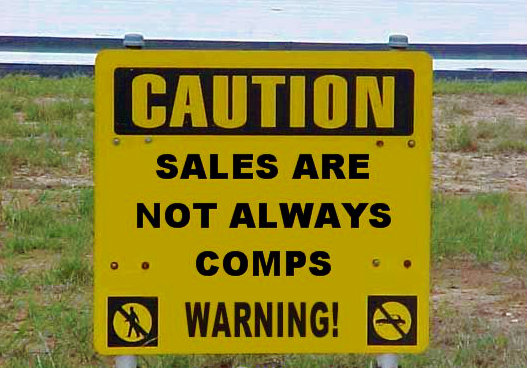Tips To Make An Agent’s Life Easier
The job of a real estate agent is extensive. There was a popular post that many agents were sharing on Facebook recently that listed all of the hats that an agent must wear.

While I cannot speak to most of those duties, or how to do them, I do have something that I would like to share regarding the pricing and appraisal part of their job. I am always trying to find ways to help agents out and make their job easier so today I thought I would share some insights regarding pricing a listing and the subsequent appraisal that will be done all from the perspective of an appraiser.
If you find some of these tips helpful please use them, however, if they don’t resonate with you by all means discard them. As always, if you have any questions about what I am discussing here or about the appraisal process in general feel free to contact me.
Mistakes Real Estate Agents Need to Steer Clear Of
1) Not providing an information packet to the appraiser – An information packet is the easiest thing to share with the appraiser. Most agents put together this information for potential buyers so why not share it with the appraiser?
In addition to information about recent updates and renovations, you should also include the sales you used when pricing the home (your CMA). This will help the appraiser understand your rationale for pricing the home where you did.
Lastly, you can also include information that you believe contributes to the marketability of the property. This may include neighborhood amenities, proximity to schools, or high walkability of the area. It goes without saying that items included in this list should have a proven positive impact on the sale price.
2) Using unverified gross living area (GLA) information – This is one of the most impactful errors I see agents make. Since most agents price a house based on its square footage, it stands to reason that if it is incorrect, your pricing can be off.
agents price a house based on its square footage, it stands to reason that if it is incorrect, your pricing can be off.
Two things can happen with this occurs. If you underestimate the size of the house then you will most likely set a list price lower than what it is actually worth, thereby leaving money on the table for the seller.
On the other hand, if you overestimate the square footage the home will probably be listed too high. In this scenario, the home will probably sit on the market for an extended time.
When it does go under contract and the lender orders the appraisal it will probably appraise for below contract price. This will require negotiating down the price or the deal falling through.
An easy solution would be to obtain accurate square footage from the start which will help the house sell for the most accurate price in the least amount of time.
3) Letting the seller influence your list price – While I have not heard of this happening a lot I thought I would mention it because it does happen sometimes. When pricing a home it is critical that the price be based on the most recent and accurate market data.
Most homeowners have a biased view of their home like we all do. It is easy to allow your emotions and history with the property to override logic and price the home too high.
In addition to emotions, some buyers do not understand the concept of cost versus value. Many feel that the money you spend on improvements will be returned at an equal or greater value than its cost, however, this is not always true.
4) Not communicating with the appraiser – It is important to keep a good line of communication open with the appraiser. We sometimes have questions that arise during the appraisal process and getting immediate answers can aid in completing the appraisal on time.
sometimes have questions that arise during the appraisal process and getting immediate answers can aid in completing the appraisal on time.
In looking at this from another perspective, appraisers also need to communicate with agents about a listing of theirs that we may be using in another appraisal. While not directly related to the subject property, appraisers must sometimes verify information about the comps they are using. If an appraiser calls you about one of your listings they are using in an appraisal report, communicating with them is very helpful and appreciated.
5) Cherry-picking comps – Cherry-picking comps can be best described as choosing sales based on a preconceived notion of what you believe the property should sell for. This is in direct contrast to choosing comps based on the physical attributes of the property.
If you go into the pricing process with this type of mentality then you will most likely find sales to support your assumption. This process, however, may not be based on verifiable market data.
By using the physical attributes of the property for comparable selection you will be more closely replicating the process the appraiser will go through. Using square footage, age, bedroom/bath count, location, updates, and other physical factors will help you choose the best comps and not just the most recent or proximate sales.
6) Using sales and not comps – All sales are not comps. I sometimes see agents use recently sold homes within the same neighborhood as comps for the house they are selling, however, as noted above there are other factors that must be considered.
comps for the house they are selling, however, as noted above there are other factors that must be considered.
Location and recency of sale are good search parameters to start with, however, as noted above, the physical characteristics of the home must also be taken into consideration. A home that sold last week that is half the size or has superior features and updates will not be comparable just because it is nearby.
It is sometimes necessary to expand our search guidelines to arrive at true comps that have occurred recently and are physically similar to the subject. It’s a good idea to start within the neighborhood, however, if the search does not produce adequate sales then looking in other areas that are still within the competitive market area of the subject property should be the next step.
7) Not addressing repairs – While an appraisal can be performed on a property no matter what condition it is in, some lenders will require repairs to be made before funding the loan. These types of requirements can either be Fannie Mae requirements or lender underwriter guidelines.
In addition, if it is an FHA loan then HUD/FHA will require certain repairs to be made if they affect the safety, soundness, or security of the property. These MPR (Minimum Property Requirements) repair items are non-negotiable and must be completed before the loan closes.
It is a good idea for real estate agents to be aware of these MPRs so that they can be addressed before the property is listed. If they are not, the appraiser will flag them and make the repairs necessary before the loan closes. This can cost the borrower more and possibly delay the closing.
Conclusion
By being aware of these mistakes real estate agents should avoid you’ll ensure that your listing is priced to the market so that it will sell in the fastest time possible. You will also ensure that the seller makes the most amount of money possible based on the latest market data. If you have any questions about what’s been discussed here feel free to contact me and as always thank you for reading.
I find being hands-off about communication with the appraiser is common, but I really want to get as much information as possible upfront. Hey Tom, Merry Christmas to you and your family. I hope you get some down time ahead.
I totally agree, Ryan. Wishing your family a Merry Christmas and Happy New Year!